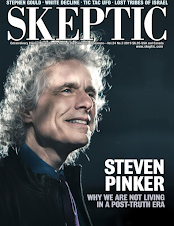LISTEN. Rationality meets once more this evening. It's Closing Day again. In addition to my standard exit lines (keep asking questions, nothing has concluded) I'll encourage us all (not least myself) to continue reflecting on the full meaning of rationality. Rational people try to achieve their ends economically and efficiently, they constantly interrogate themselves about the wisdom and humanity of their chosen ends, they never close the door on other possibilities, they intend and expect to feel at home in the world and to coexist with other rational agents whose various personal projects and faiths (hopes, dreams, delights) make the world a richer and more celebrative plurality.
I've started a little reading list, to support that encouragement.
Klein shows how and why American politics polarized around identity in the 20th century, and what that polarization did to the way we see the world and each other. And he traces the feedback loops between our polarized political identities and our polarized political institutions that are driving our political system towards crisis. g'r
“...toxic systems compromise good individuals with ease. They do so not by demanding we betray our values but by enlisting our values such that we betray each other. What is rational and even moral for us to do individually becomes destructive when done collectively. How American politics became a toxic system, why we participate in it, and what it means for our future is the subject of this book.”― Why We're Polarized



“I have a foreboding of an America in my children's or grandchildren's time -- when the United States is a service and information economy; when nearly all the manufacturing industries have slipped away to other countries; when awesome technological powers are in the hands of a very few, and no one representing the public interest can even grasp the issues; when the people have lost the ability to set their own agendas or knowledgeably question those in authority; when, clutching our crystals and nervously consulting our horoscopes, our critical faculties in decline, unable to distinguish between what feels good and what's true, we slide, almost without noticing, back into superstition and darkness..."
"The dumbing down of American is most evident in the slow decay of substantive content in the enormously influential media, the 30 second sound bites (now down to 10 seconds or less), lowest common denominator programming, credulous presentations on pseudoscience and superstition, but especially a kind of celebration of ignorance.”
“I worry that, especially as the Millennium edges nearer, pseudoscience and superstition will seem year by year more tempting, the siren song of unreason more sonorous and attractive. Where have we heard it before? Whenever our ethnic or national prejudices are aroused, in times of scarcity, during challenges to national self-esteem or nerve, when we agonize about our diminished cosmic place and purpose, or when fanaticism is bubbling up around us - then, habits of thought familiar from ages past reach for the controls.
The candle flame gutters. Its little pool of light trembles. Darkness gathers. The demons begin to stir.”
Unfortunately the vast majority of Republicans won't say it in public. In fact about 70% of them say they believe the Big Lie. Carl Sagan's sad observation of a quarter century ago rings true: “One of the saddest lessons of history is this: If we’ve been bamboozled long enough, we tend to reject any evidence of the bamboozle. We’re no longer interested in finding out the truth. The bamboozle has captured us. It’s simply too painful to acknowledge, even to ourselves, that we’ve been taken. Once you give a charlatan power over you, you almost never get it back.”
Good luck, everyone. Sapere aude.




No comments:
Post a Comment